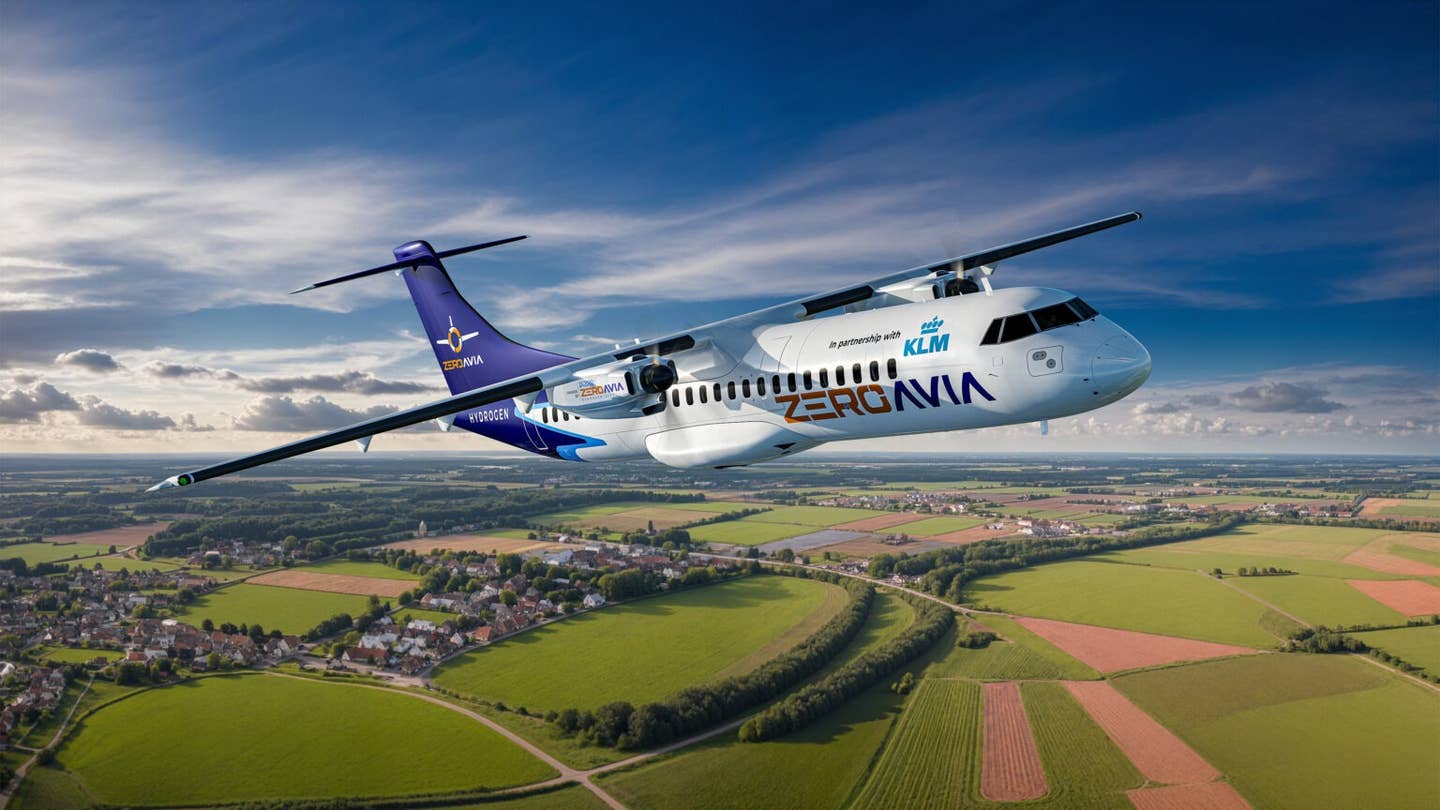MagniX Developing Hydrogen Fuel Cells
The company is developing hydrogen fuel cells as part of its effort to power carbon-free flight.

Alice begins her inaugural climb to 3,500 feet. [Credit: David Honan]
MagniX, the company that provided the electric-propulsion system for Alice, Eviation's battery-powered airplane, is developing hydrogen fuel cells as part of its effort to power carbon-free flight.
"Just as magniX has led the world in electric propulsion, now we have the chance to lead again in the development of hydrogen technology," Riona Armesmith, chief technology officer at magniX, said in a statement. "This technology has the potential to play a significant role in ushering in the era of zero-carbon flight. By complementing our existing battery-electric and hybrid-electric programs, it will allow us to best serve the electric aerospace marketplace, meeting the needs of the planet and of our customers."
For the past several years, the Everett, Washington-based company has explored different methods of propulsion that reduce or eliminate an aircraft's carbon footprint, such as developing hydrogen systems for its leading electric propulsion units (EPUs).
MagniX is working with other companies to produce carbon-free flight. In 2020, magniX partnered with Universal Hydrogen as part of the development of Alice, which sports magniX's 650-kilowatt motors. Last year, magniX announced it was broadening its efforts by working with PlugPower Inc., which is developing hydrogen fuel cell systems to replace conventional batteries in vehicles powered by electricity, as well as AeroTEC, a company that provides aerospace testing and engineering.
The entities are joining forces to create a Hydrogen Aviation Test and Service Center at Grant County International Airport (KMWH) in Moses Lake, Washington. The airport, a former military base, has been the site of new technology development since World War II. On September 27, Eviation's Alice launched from there on its maiden flight.
Why Hydrogen?
Hydrogen is beneficial as a replacement for fossil fuels because, like batteries, it produces zero carbon emissions and will reduce aviation's impact on the environment, the company explained.
Hydrogen has a high energy density, providing the capability to power electric aircraft of 50 to 90 passengers.
"By offering this technology alongside battery-electric and hybrid-electric systems, which will remain better suited to powering smaller aircraft, magniX will be able to offer a wider range of electric solutions to operators transitioning to carbon-free fleets," the company said.
"The future of sustainable aviation will require a mix of solutions," Nuno Taborda, CEO of magniX, said. "We are bringing our experience and expertise to advance hydrogen fuel cell technology which will enable us to power even more aircraft. MagniX is leading the charge into the future with passion and innovation."

Subscribe to Our Newsletter
Get the latest FLYING stories delivered directly to your inbox






